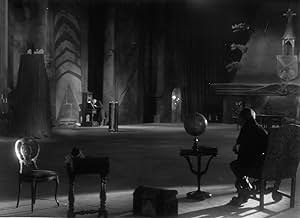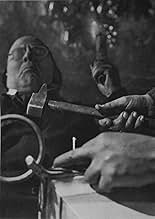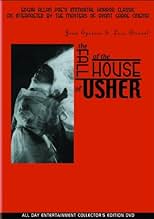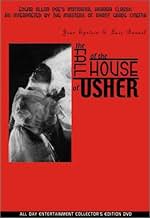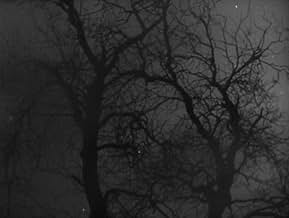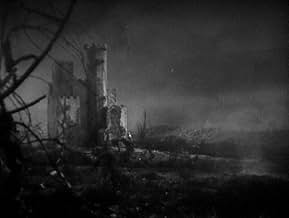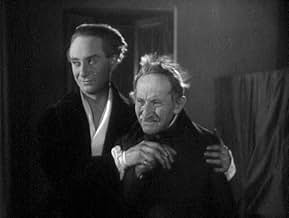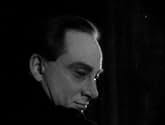The Fall of the House of Usher is about... well, I suppose it's about someone, Allan, visiting the house of Usher, run by Roderick, who lives with his sick wife Madeline and spends most of his time painting and trying to find a cure for whatever her supernatural-esquire disease is. The rest of what happens I cannot really say. Maybe because I'm still not totally sure myself. While I've yet to read the original Poe story, or see the later, more well known Roger Corman production with Vincent Price, I would probably advise on what little I know in comparing both films for the 1960 version if you're most concerned about sticking straight to the story.
Apparently, by the way, Luis Bunuel, who was director Jean Epstein's chief collaborator, quit after creative clashes over this issue. For whatever reason it was, I'd be hard-pressed to figure on how much influence he did or didn't leave on the picture. As it stands, and probably sticking to a certain aesthetic that was familiar for those in love with Poe, the silent version of Fall of the House of Usher is chock full of atmosphere in every kind of delicious, creepy, wonderful kind of connotation. The production design is sometimes full of a smoke, or a smoke-filled tint from the camera, and the outside of the mansion is covered in dirty fields and dead trees. The inside of the house, the interiors of the walls, the mirrors, the paints of Roderick's, and the placement of the camera in some strange angles (i.e. guitar) all build up to something unexpected.
Would I call it surrealism just because of Bunuel's involvement? Yes and no. Yes in that, of course, there are some striking moments that could only come out of a dream &/or a desire to just completely tool around with the audience's head just for the hell of it. And no because it's really Epstein's movie through it all, and he crafts this mostly as a somber, quietly intense picture where he experiments not in as a surrealist but as a director of contemplative Gothic horror. I can't even totally understand what absorbed me, but everything in the 'plastic', technical sense of the word did, not to mention the performances by Debucourt, Lamy, and especially Gance who all seem to be drifting in and out of the fantastical consciousness that seems to be living in this place, where life and death merge or go un-hinged, and (as another reviewer noted) is like a slow-poisoning prison.
Just, as I said, don't watch it to be wrapped up in 'what happens next in the "plot"', as it's more about what may happen in the next twist with a setting or a mood, or if a character should suddenly have a look that changes everything. It's not the greatest of the near-end silent period, but it's close.

